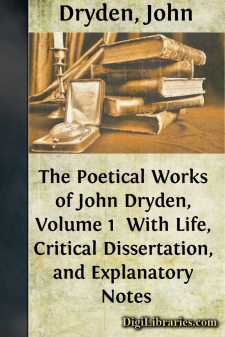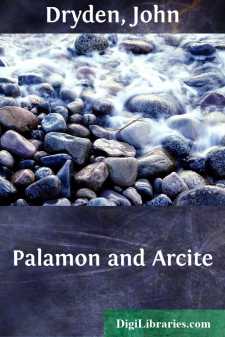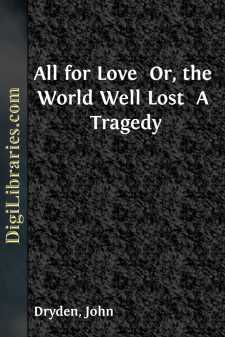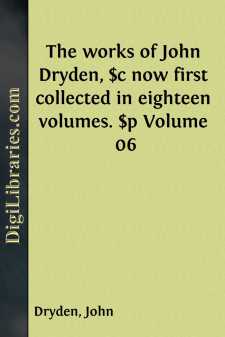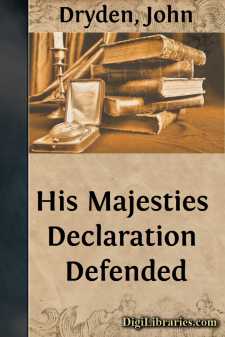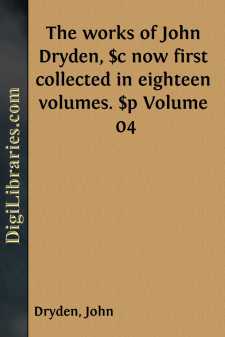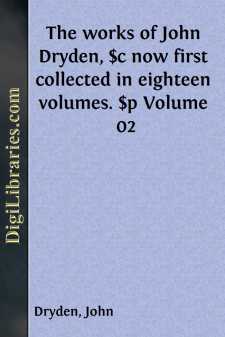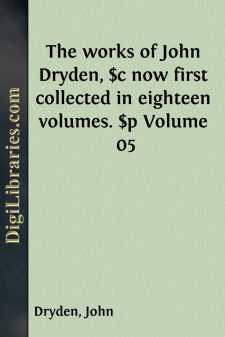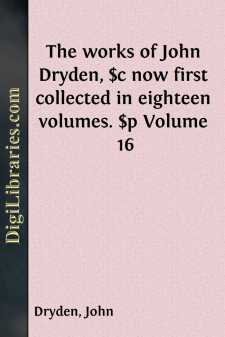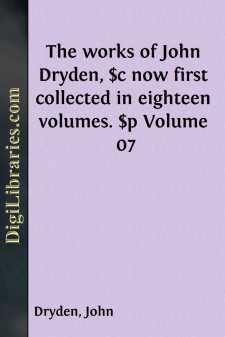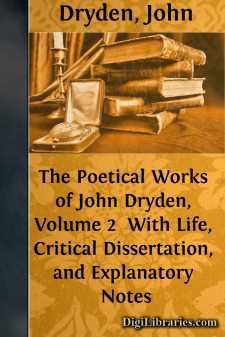Categories
- Antiques & Collectibles 13
- Architecture 36
- Art 48
- Bibles 22
- Biography & Autobiography 813
- Body, Mind & Spirit 142
- Business & Economics 28
- Children's Books 17
- Children's Fiction 14
- Computers 4
- Cooking 94
- Crafts & Hobbies 4
- Drama 346
- Education 46
- Family & Relationships 57
- Fiction 11829
- Games 19
- Gardening 17
- Health & Fitness 34
- History 1377
- House & Home 1
- Humor 147
- Juvenile Fiction 1873
- Juvenile Nonfiction 202
- Language Arts & Disciplines 88
- Law 16
- Literary Collections 686
- Literary Criticism 179
- Mathematics 13
- Medical 41
- Music 40
- Nature 179
- Non-Classifiable 1768
- Performing Arts 7
- Periodicals 1453
- Philosophy 64
- Photography 2
- Poetry 896
- Political Science 203
- Psychology 42
- Reference 154
- Religion 513
- Science 126
- Self-Help 84
- Social Science 81
- Sports & Recreation 34
- Study Aids 3
- Technology & Engineering 59
- Transportation 23
- Travel 463
- True Crime 29
The Poetical Works of John Dryden, Volume 1 With Life, Critical Dissertation, and Explanatory Notes
by: John Dryden
Description:
Excerpt
THE LIFE OF JOHN DRYDEN.
John Dryden was born on the 9th of August 1631, at a place variously denominated Aldwincle, or Oldwincle, All Saints; or at Oldwincle, St Peter's, in Northamptonshire. The name Dryden or Driden, is from the North. There are Drydens still in the town of Scotland where we now write; and the poet's ancestors lived in the county of Cumberland. One of them, named John, removed from a place called Staff-hill, to Northamptonshire, where he succeeded to the estate of Canons-Ashby, by marriage with the daughter of Sir John Cope. John Dryden was a schoolmaster, a Puritan, and honoured, it is said, with the friendship of the celebrated Erasmus, after whom he named his son, who succeeded to the estate of Canons-Ashby, and, besides becoming a sheriff of the county of Northamptonshire, was created a knight under James I. Sir Erasmus had three sons, the third of whom, also an Erasmus, became the father of our poet. His mother was Mary, the daughter of the Rev. Henry Pickering, whose father, a zealous Puritan, had been one of the marked victims in the Gunpowder Plot. Dryden thus had connexions both on his father's and mother's side with that party, by deriding, defaming, and opposing which he afterwards gained much of his poetical glory.
The poet was the eldest of fourteen children—four sons and ten daughters. The honour of his birth is claimed, as already stated, by two parishes, that of Oldwincle, All Saints, and that of Oldwincle, St Peter's, as Homer's was of old by seven cities. His brothers and sisters have been followed, by eager biographers, into their diverging and deepening paths of obscurity—paths in which we do not choose to attend them. Dryden received the rudiments of his education at Tichmarsh or at Oundle—for here, too, we have conflicting statements. It is certain, however, that he was admitted a king's scholar at Westminster, under the tuition of Dr Busby, whom he always respected, and who discovered in him poetical power. He encouraged him to write, as a Thursday's night's task, a translation of the third Satire of Persius, a writer precisely of that vigorously rhetorical, rapidly satirical, and semi-poetical school, which Dryden was qualified to appreciate and to mirror; besides other pieces of a similar kind which are lost. During the last year of his residence at Westminster, and when only eighteen years of age, he wrote one among the ninety-eight elegies which were called forth by the sudden death of Henry Lord Hastings, and published under the title of "Lachrymæ Musarum." Hastings seems to have been an amiable person, but he was besides a lord, and hinc illoe lachrymæ. We know not of what quality the other tears were, but assuredly Dryden's is one of very suspicious sincerity, and of very little poetical merit. But even the crocodile tears of a great genius, if they fall into a fanciful shape, must be preserved; and we have preserved his, accordingly, notwithstanding the false taste as well as doubtful truth and honesty of this his earliest poem....


